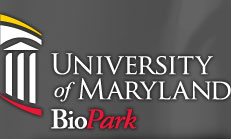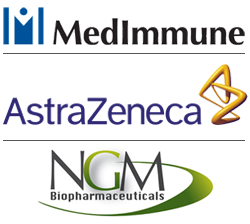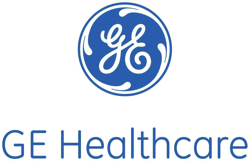|

BioHealth Innovation is working to assist relevant SBIR projects through its Commercial Relevance Program for the August 5th, 2013 NIH SBIR Deadline.
If your company is planning a submission for the August 5 deadline, BioHealth Innovation can assist with your submission. Through the BHI Commercial Relevance Program for SBIR/STTR projects select companies submit their federal funding concepts and receive pre-proposal feedback to help strengthen your application. Further support from BHI’s network of professional consultants and service providers is available to assist in improving your application. If you’re are planning a submission for the August 5 deadline contact Ethan Byler for details on possible support from BHI.
NIH SBIR Phase I Program
- Companies to complete brief application describing the proposed SBIR project apply by June 18th
- All companies notified of SBIR assistance by June 26th
- Guidance, writing strategy, direction, and review sessions to be schedule to enable you through grant submission
- Feedback and redlined comments on written drafts and proposals materials as well as final submission assistance
back to top 

June 27th, 3:30-5:30pm
Join Nicholas P. Jones, Benjamin T. Rome Dean, Whiting School of Engineering to celebrate the launch of FastForward.
There are a few spots left.
RSVP today!
410-516-8723 / engineering@jhu.edu
Get a preview of the innovative technologies created by Johns Hopkins faculty, postdoctoral fellows, and students in the FastForward accelerator and see examples of entrepreneurship from across the university. Learn how FastForward, a unique innovation system, can increase the probability of a startup's success.
back to top 

6/28 DEADLINE to reserve your place in line for Maryland’s
FY2014 Biotechnology Investor Incentive Tax Credits.
$10M (up to $1.5M/co.) distributed first come-first served to investors in MD QMBCs*:
QMBC requirements include:
- At least 1 full time employee (cash compensated, not equity) & fewer than 50employees; and
- A lease or ownership oflab or office space in Maryland; and
- $100,000 in capitalization (sources:equity, convertible debt, long term loans, SBIR financing); and
- Evidence of innovative biotechnology research owned by the company and conducted in MD; and
- BIITC participation for 10 or fewer years; or
- For first time applicants: 10 or fewer years in business (12 years if in a FDA regulatory process)
If your firm qualifies for QMBC certification by Maryland’s Department of Business and
Economic Development (DBED), your investors may be able to receive a 50% credit on their
investments in your company.
6/28 is the deadline to apply to receive a pin number providing access to the
7/8/13 electronic line-up for FY 2014 BIITC funds.
For more information regarding the BIITC and other state funding programs and access to the BIITC
investor and company application forms on the DBED web site, check online: www.Bio.Maryland.gov.
*QMBC status will not be determined until after the electronic line-up as applications are being reviewed.
**Additional funds may be available after those requested at the initial electronic line-up on 7/8/2013.
back to top 

University of Maryland, Baltimore campus President Jay A. Perman, M.D., and University of Maryland School of Medicine Dean E. Albert Reece, M.D., Ph.D., M.B.A., wish to announce the establishment of a new center to unite research scientists and physicians across disciplines. The center will employ these interdisciplinary connections to enhance the use of cutting edge medical science such as genomics and personalized medicine to accelerate research discoveries and improve health care outcomes. Participants in the new University of Maryland Center for Health-Related Informatics and Bioimaging (CHIB) will collaborate with computer scientists, engineers, life scientists and others at a similar center at the University of Maryland, College Park campus, together forming a joint center supported by the M-Power Maryland initiative.
University of Maryland School of Medicine Dean E. Albert Reece, M.D., Ph.D., M.B.A., with the concurrence of President Perman, has appointed as co-director of the new center Owen White, Ph.D., Professor of Epidemiology and Public Health and Director of Bioinformatics at the University of Maryland School of Medicine Institute for Genome Sciences.
back to top 

UK pharmaceutical company AstraZeneca plc (LSE:AZN) is the second bidder for the dedicated biotech incubator being set up by the Chief Scientist's incubator program at the Ministry of the Economy, sources inform "Globes."
The company will bid for the incubator tender against a consortium of OrbiMed venture capital fund and healthcare giant Johnson & Johnson (NYSE: JNJ).
back to top 

The University of Maryland (UM) BioPark announced today that Ocular Proteomics, LLC (OPL), a startup biotechnology company leveraging a new class of biomarkers found in vitreous fluid of the eye to more accurately diagnose and treat retinal diseases, has recently relocated to Building One of the BioPark from Baltimore County. Led by world-renowned and internationally respected retinal surgeon Bert M. Glaser, M.D., OPL is a spin out of the National Retina Institute. OPL’s move to the BioPark comes on the heels of the company’s $1.2 million dollar Small Business Innovation in Research (SBIR) phase 2 grant from the National Institutes of Health. In its new space, OPL will be conducting the research phase of a multi-center clinical trial, which will include 200 patients with macular degeneration.
Said Jim Hughes, President, Research Park Corporation, University of Maryland Baltimore, “The BioPark has once again attracted an innovative and important start-up to our location. We’re pleased to welcome Dr. Glaser and Ocular Proteomics to our roster of commercial tenants. Dr. Glaser founded Ocular Proteomics to use personalized medicine to drastically change the way blinding diseases are diagnosed and treated.”
back to top 

Irene Pollin, the widow of the late Washington sports team owner Abe Pollin, has donated $10 million to a Johns Hopkins University center for the prevention of heart disease.
Hopkins announced Thursday that Pollin’s gift will support the Ciccarone Center for the Prevention of Heart Disease in the division of cardiology.
back to top 

AstraZeneca (STO:AZN)(LSE:AZN) today announced that MedImmune, its global biologics research and development arm, and NGM Biopharmaceuticals, Inc. have entered into an exclusive agreement to discover, develop and commercialise novel therapeutics from NGM’s enteroendocrine cell (EEC) programme for the treatment of type 2 diabetes and obesity.
EECs represent less than 1% of all gastrointestinal (GI) cells, but produce virtually all of the known GI hormones, including GLP-1. EECs are an underexplored source of novel hormones that could play a major role in the positive and negative regulation of metabolism and glucose homeostasis. NGM has established a proprietary platform capable of isolating and analysing EECs in order to identify novel secreted peptide hormones that are potentially linked to the profound metabolic effects of bariatric surgery and serve as potential targets for the treatment of metabolic diseases.
back to top 

Aside from memory loss and cognitive impairments, often the most difficult aspect of caring for people with dementia is treating their disruptive changes in behavior.
With no reliable medications to treat them and limited information for caregivers regarding alternative therapies, these behavior changes are frequently the source of increased upset, stress and burden to families and often result in nursing home placement.
back to top 
Wednesday, June 19, 2013, 06:00pm - 09:00pm
CoFoundersLab & Society of Physician Entrepreneurs proudly presents an educational and networking forum for entrepreneurs in healthcare and life sciences.
To make the most of your time, please browse CoFoundersLab.com and filter by "Meetup Groups - Society of Physician Entrepreneurs" before attending. If you have not created a profile on CoFoundersLab.com, please note that this is required in order for people to discover you before the event and seek you out during the networking portion of the event.
More Information
back to top 

Many times when I talk with small businesses, they don't fully understand the difference between a Federal Grant and a Federal Contract. It is important for a small business to completely understand if their government funds are coming from a grant or a contract. The terms and conditions surrounding each have somewhat unique requirements that may have implications on how the business handles the award and, in particular, the accounting related to that award.
The Government defines the difference in fairly easy to understand terms (for the government) at the grants.gov website:
A Grant is an award of financial assistance, the principal purpose of which is to transfer a thing of value from a federal agency to a recipient to carry out a public purpose of support or stimulation authorized by a law of the United States (see 31 U.S.C. 6101(3)). A grant is distinguished from a contract, which is used to acquire property or services for the federal government's direct benefit or use.
back to top 

The NIH is one of the 'easier' federal agencies to apply to because every year it issues an Omnibus Solicitation, requesting investigator- initiated topics. This means that rather than telling you exactly which projects they will fund, the NIH asks you, the investigator, to come up with the ideas.
As long as these ideas are related to Human Health, have the requisite level of Technological Innovation and Commercial Potential, they may be appropriate for SBIR/STTR. However, you still need to do some homework to make sure your idea fits within the research interests of the NIH's Institutes and Centers. So before you put a lot of work into developing your proposal, there are a few things you can do:
back to top 

On May 31, the Department of Health and Human Services (HHS) reissued its Omnibus Funding Opportunity Announcement (FOA) for the Small Business Innovation Research (SBIR) and the Small Business Technology Transfer (STTR) programs in order to implement venture capital provisions of the SBIR/STTR Reauthorization Act of 2011.
HHS notice NOT-OD-13-071 will allow small business concerns that are majority-owned by multiple venture capital operating companies (VCOCs), hedge funds and/or private equity firms to apply for the NIH SBIR program and compete for up to 25 percent of NIH’s SBIR set-aside in the Omnibus FOA or any other NIH SBIR funding announcement issued hereafter. With this notice, NIH is the first agency to elect to use its authority under Section 5107 of the reauthorization to make awards to majority-owned firms, signaling new and significant opportunities for venture capital in the future.
back to top 

The University Economic Development Association (UEDA) is currently seeking nominations for its annual Awards of Excellence program, which recognizes leading edge university-based economic development initiatives from across the country. The Awards of Excellence Program recognizes higher education institutions and their partners who are transforming their campuses into engines of economic prosperity through creative initiatives in five categories:
- Community Connected Campus: initiatives that promote the physical development of quality connected campuses and their surrounding communities;
- Research and Analysis: initiatives that enhance the capacity of colleges and universities to provide new forms of research and tools for community, economic and workforce development practitioners;
- Leadership and Collaboration: initiatives that support the development of collaborative economic development strategies and the leaders required to implement them;
- Innovation and Entrepreneurship: initiatives designed to support startups, high-growth companies and clusters within a region; and
- Talent Development: initiatives that promote the development of 21st-century skills.
back to top 

It’s a popular sport among startups and the mobile vendor community to figure out what physicians are willing to do on their tablets and smartphones. It has to be said that some of them have come up with some pretty compelling approaches to deepen the relationship between physicians and their mobile devices.
But what is really going on in their practices? In two studies generated from a survey by AmericanEHRPartners of 1,400 with responses from about 696 physicians and 150 allied health professionals has uncovered some interesting information. AmericanEHRPartners was formed in 2010 by formed by Cientis Technologies and the American College of Physicians to help physicians compare and implement electronic health records.
back to top 

Robert Langer shares the experiences and lessons learned through his involvement with more than two dozen biotech startups.
I started my first company in 1987 because I realized it was an effective path for transforming science into life-saving and life-improving inventions. Startup companies provide one means for accomplishing ends that interested me: creating products that have a positive effect on human health. I did this first with a colleague (Box 1), but through the years I have also started many companies with students and postdocs in my MIT lab.
back to top 

In the year following its groundbreaking last June, all aspects of Bioscience Connecticut have moved forward on time and on budget. Of note, the project has created about 500 construction and related jobs on the UConn Health Center campus in its first year, including higher-than-required averages for small business participation and 85 percent of all work going to Connecticut-based contractors. The number of construction jobs will rise significantly over the next three years.
“Bioscience Connecticut was an important first step in positioning Connecticut as a leader in the industry,” said Governor Dannel P. Malloy. “This investment, in conjunction with the new Bioscience Innovation Fund and our other efforts, not only creates thousands of good paying jobs with good benefits, but also highlights the commitment we have to growing this sector of our economy. Our vigorous approach to establishing long-term partnerships between our universities, medical centers, and private secto
back to top 

Emory University has launched a public-private drug development enterprise that will transition scientific discoveries more rapidly and efficiently from university laboratories into the marketplace. The new venture is expected to help address worldwide drug development and commercialization needs.
Drug Innovation Ventures at Emory, LLC (DRIVE) is a not-for-profit company separate from, but wholly owned by Emory.
back to top 

On Tuesday, GE Healthcare announced plans to invest $2 billion over the next five years on the development of software for health systems and applications, Healthcare IT News reports.
To develop the software, the company will work with the GE Software Center of Excellence in San Ramon, Calif., in addition to several other research and development firms across the world (Monegain, Healthcare IT News, 6/12).
back to top 
|